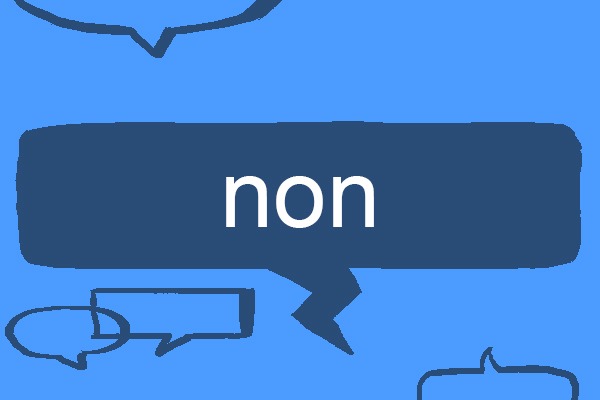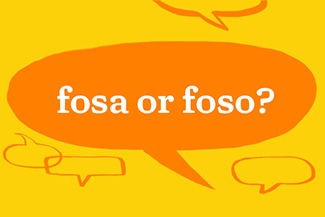Welcome back to our blog, a weekly helping hand for learners of French! Today, we are looking at a very common word that you probably encountered at the start of your language journey – it’s the word non.
Take a listen to the audio clip below to hear its pronunciation:
If you don’t already know this word, you will probably be able to guess as it has a very similar spelling to one of the most basic English words… That’s right, non means no.
We’re not going to dwell too long on the grammar of this small but mighty word, but you may know, or you may like to know, that non is an adverb. For the grammar fans among you, head to our Easy Learning French Grammar section on adverbs to find out more information.
You can often just use non on its own as a response, like in the following examples:
« As-tu déjà mangé ? » « Non. » “Have you already eaten?” “No.”
« Est-ce que vous allez boire un verre avant le concert ? » « Non. » “Are you all going out for a drink before the concert?” “No.”
However, this word is much more versatile in translation than you might think. Let’s look at further examples where you can use non in different situations, with different translations:
…non plus not … either
moi non plus me neither; neither do I
Imran n’est pas parti et moi non plus. Imran didn’t leave and neither did I.
On ne s’est pas vu non plus. We didn’t see each other either.
non seulement… not only…
Non seulement tu ne comprends pas ce livre, mais en plus tu n’aimes pas lire ! Not only do you not understand this book, but also you don’t even enjoy reading!
Ton copain commençait un nouvel emploi, non ? Your boyfriend was starting a new job, wasn’t he?
Bien sûr que non ! ; Mais non ! Of course not!
Je crois que non. I don’t think so.
Il paraît que non. Apparently not.; It doesn’t seem so.
une boisson non alcoolisée a soft drink
Elles ont acheté des billets non remboursables. They bought non-refundable tickets.
Before reading our blog on non, you might have thought this word only served one simple purpose. But after studying how you can use it in lots of different contexts, you’ve seen not only how versatile it can be, but also the many ways you can translate it. Pretty useful, non?
Written by Holly Tarbet, freelance copywriter and editor.
All opinions expressed on this blog are those of the individual writers, and do not necessarily reflect the opinions or policies of Collins, or its parent company, HarperCollins.



